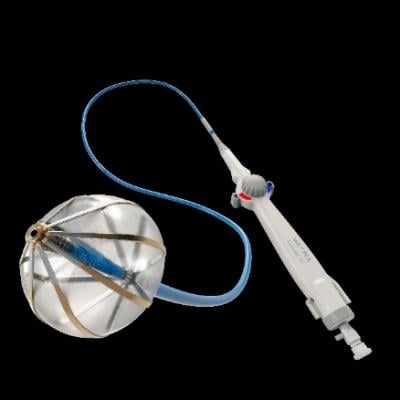
January 18, 2024 — Abbott announced the first global procedures have been conducted using the company's new Volt Pulsed Field Ablation (PFA) System to treat patients battling common abnormal heart rhythms such as atrial fibrillation (AFib). Over 30 patients were recently treated in Australia as part of Abbott's Volt CE Mark study, a pre-market, multi-center clinical study designed to evaluate the safety and effectiveness of Abbott's Volt PFA System. In addition to upcoming procedures in markets across Asia Pacific and Europe, Abbott anticipates approval for its U.S. clinical trial (IDE) for the Volt PFA System in the first half of this year.
"We have long known that pulsed field ablation could open up an entirely new frontier in how we treat people battling the most complex cardiac arrhythmias. But like any innovation, early solutions have not been able to fully capitalize on those potential benefits," said Professor Prash Sanders, M.B.B.S., Ph.D., director of the Centre for Heart Rhythm Disorders at the University of Adelaide in Australia, who conducted the first procedures with the Volt PFA System. "Abbott has designed a novel PFA solution that, when combined with its EnSite X cardiac mapping system, can address hard-to-treat irregular heartbeats with a level of accuracy and precision that's never before been possible."
Historically, patients requiring a cardiac ablation procedure to treat conditions like AFib received radiofrequency (RF) ablation, which uses heat to destroy tissue responsible for erratic heart signals, or cryogenic ablation, which freezes tissue. Instead of heat or extreme cold, PFA uses high energy electrical pulses to destroy the cells causing abnormal heart rhythms, which can reduce the risk of damaging adjacent tissue in patients with complex disease or anatomy.
First-generation PFA systems have required multiple ablations with the catheter positioned in various locations to effectively treat targeted tissue.
Abbott's Volt PFA System addresses these limitations by pairing its balloon-in-basket catheter with Abbott's EnSite X EP System, an industry-leading heart mapping system that allows physicians to visualize and position tools like the Volt PFA Catheter in the heart. Volt's design can result in more accurate ablation procedures as it provides physicians a clearer indication to make improved contact with the targeted heart tissue due to the catheter's unique positioning, handling and steering. Its balloon feature allows for efficient energy transfer to tissue to improve how the catheter creates lesions to stop the heart's erratic signals.
The EnSite X mapping system's clear visualization guides physicians to precisely identify areas in the heart that require ablation, allowing for a more accurate position of the Volt PFA Catheter to treat tissue. The benefits of this degree of specificity are a more efficient workflow and reduced patient exposure to radiation.
"Daily life for the millions of people with AFib can be difficult as symptoms often include palpitations, shortness of breath, dizziness and chest pain, making it critical that physicians treat the issue as soon as possible," said Christopher Piorkowski, M.D., chief medical officer of Abbott's electrophysiology business. "With AFib cases expected to rise continuously, Abbott's Volt PFA System meets a growing demand for a more innovative solution that reduces the patient procedure time and overall hospital stay, getting them back to living a fuller, longer life."
For more information: www.abbott.com


 January 05, 2026
January 05, 2026 









